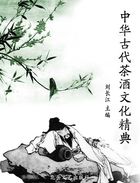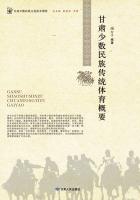Bob had consumed, or wasted, all their provisions--and, still more unfortunately, his righteous visit, his gun, and his superabundant animal spirits had frightened away the game, which their habitual quiet and taciturnity had beguiled into trustfulness. They were half starved, but they did not blame him. It would come all right when he returned. They counted the days, Jim with secret notches on the long pole, Li Tee with a string of copper "cash" he always kept with him. The eventful day came at last,--a warm autumn day, patched with inland fog like blue smoke and smooth, tranquil, open surfaces of wood and sea; but to their waiting, confident eyes the boy came not out of either. They kept a stolid silence all that day until night fell, when Jim said, "Mebbe Boston boy go dead."
Li Tee nodded. It did not seem possible to these two heathens that anything else could prevent the Christian child from keeping his word.
After that, by the aid of the canoe, they went much on the marsh, hunting apart, but often meeting on the trail which Bob had taken, with grunts of mutual surprise. These suppressed feelings, never made known by word or gesture, at last must have found vicarious outlet in the taciturn dog, who so far forgot his usual discretion as to once or twice seat himself on the water's edge and indulge in a fit of howling. It had been a custom of Jim's on certain days to retire to some secluded place, where, folded in his blanket, with his back against a tree, he remained motionless for hours. In the settlement this had been usually referred to the after effects of drink, known as the "horrors," but Jim had explained it by saying it was "when his heart was bad." And now it seemed, by these gloomy abstractions, that "his heart was bad" very often. And then the long withheld rains came one night on the wings of a fierce southwester, beating down their frail lodge and scattering it abroad, quenching their camp-fire, and rolling up the bay until it invaded their reedy island and hissed in their ears. It drove the game from Jim's gun; it tore the net and scattered the bait of Li Tee, the fisherman. Cold and half starved in heart and body, but more dogged and silent than ever, they crept out in their canoe into the storm-tossed bay, barely escaping with their miserable lives to the marshy peninsula. Here, on their enemy's ground, skulking in the rushes, or lying close behind tussocks, they at last reached the fringe of forest below the settlement. Here, too, sorely pressed by hunger, and doggedly reckless of consequences, they forgot their caution, and a flight of teal fell to Jim's gun on the very outskirts of the settlement.
It was a fatal shot, whose echoes awoke the forces of civilization against them. For it was heard by a logger in his hut near the marsh, who, looking out, had seen Jim pass. A careless, good-natured frontiersman, he might have kept the outcasts' mere presence to himself; but there was that damning shot! An Indian with a gun! That weapon, contraband of law, with dire fines and penalties to whoso sold or gave it to him! A thing to be looked into--some one to be punished! An Indian with a weapon that made him the equal of the white! Who was safe? He hurried to town to lay his information before the constable, but, meeting Mr. Skinner, imparted the news to him. The latter pooh-poohed the constable, who he alleged had not yet discovered the whereabouts of Jim, and suggested that a few armed citizens should make the chase themselves. The fact was that Mr. Skinner, never quite satisfied in his mind with his son's account of the loss of the gun, had put two and two together, and was by no means inclined to have his own gun possibly identified by the legal authority. Moreover, he went home and at once attacked Master Bob with such vigor and so highly colored a description of the crime he had committed, and the penalties attached to it, that Bob confessed. More than that, I grieve to say that Bob lied. The Indian had "stoled his gun," and threatened his life if he divulged the theft. He told how he was ruthlessly put ashore, and compelled to take a trail only known to them to reach his home. In two hours it was reported throughout the settlement that the infamous Jim had added robbery with violence to his illegal possession of the weapon. The secret of the island and the trail over the marsh was told only to a few.
Meantime it had fared hard with the fugitives. Their nearness to the settlement prevented them from lighting a fire, which might have revealed their hiding-place, and they crept together, shivering all night in a clump of hazel. Scared thence by passing but unsuspecting wayfarers wandering off the trail, they lay part of the next day and night amid some tussocks of salt grass, blown on by the cold sea-breeze; chilled, but securely hidden from sight.















